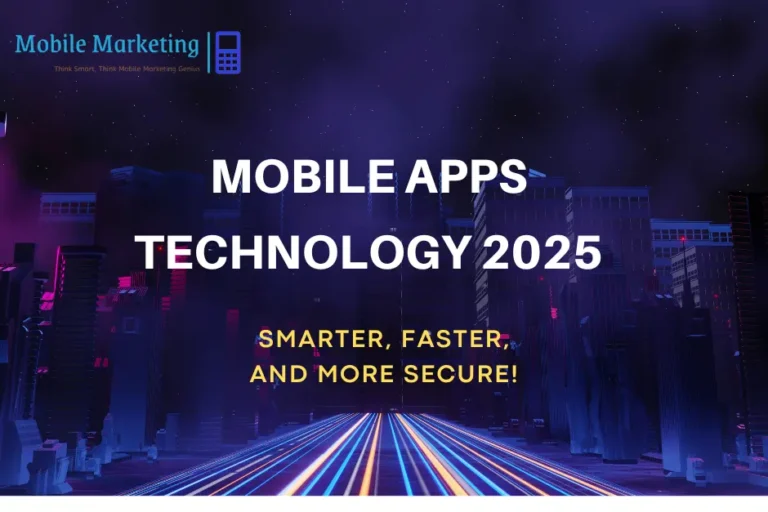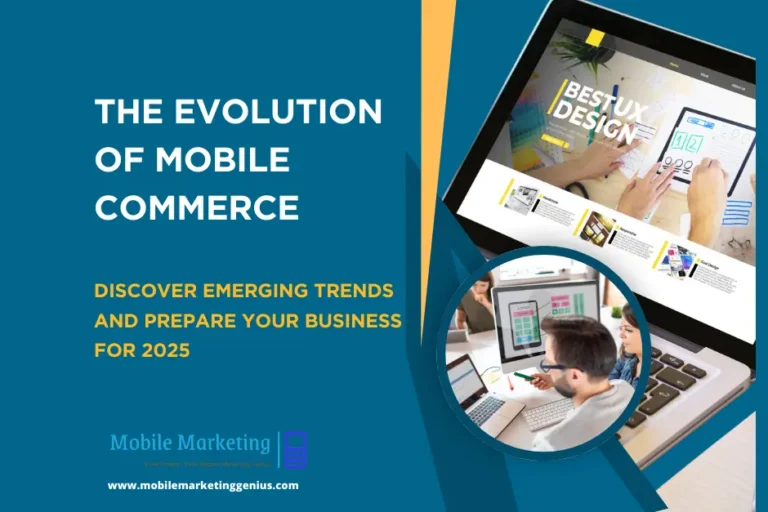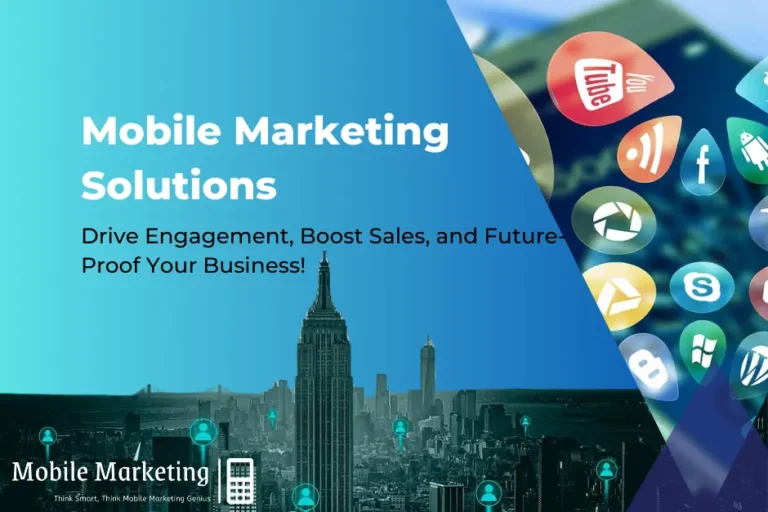Unlocking Success with Enterprise Mobile App Development: Transform Your Business Landscape

In today’s dynamic business landscape, Enterprise Mobile App Development is revolutionizing how organizations operate, communicate, and serve clients. As technology advances and workplaces become more flexible, mobile apps have emerged as essential tools that empower employees, streamline processes, and enhance customer experiences.
For professionals, enterprise mobile apps offer a strategic advantage—enabling on-the-go access to critical data, improving productivity, and fostering faster decision-making. Beyond convenience, these apps drive digital transformation by automating tasks, simplifying communication, and integrating with existing systems, creating an ecosystem where every user can perform efficiently.
This article explores the vital components of enterprise mobile app development, from benefits and features to development stages and common challenges. Whether you’re in IT or business strategy, understanding this roadmap is key to unlocking new levels of agility and competitive advantage for your organization.
Table of Contents
What is Enterprise Mobile App Development?
Enterprise mobile app development is the process of crafting customized applications that meet a company’s specific operational needs. Unlike consumer-facing applications, enterprise apps prioritize optimized business operations, improved workflows, and enhanced data accessibility for employees, partners, and clients, making them essential tools for business transformation.
According to a study by Statista, “the enterprise mobile app market is expected to reach $46 billion by 2030, driven by the need for enhanced operational efficiency” (Statista, 2024).
Key Benefits of Enterprise Mobile Apps
Enterprise mobile applications bring substantial value to businesses, from heightened efficiency to streamlined customer engagement. Below is an overview of these core benefits:
| Benefit | Description |
|---|---|
| Enhanced Employee Productivity | Empowers employees with on-the-go access to vital tools and data. |
| Better Customer Connections | Fosters direct, efficient communication with customers. |
| Streamlined Operations | Digitizes and automates tasks for smoother workflows. |
| Informed Decision-Making | Provides real-time data insights for strategic actions. |
| Increased Accessibility | Facilitates resource access from various locations, improving flexibility. |

Types of Enterprise Mobile Apps
Enterprise mobile apps are tailored to various business functions. Some common types include:
- Employee-Focused Apps: Tools for task management, internal communication, and HR services.
- Customer-Focused Apps: Platforms for client support, loyalty incentives, and personalized service.
- Data and Analytics Apps: Applications that offer real-time insights for informed decisions.
- Workforce Management Apps: Tools to assist with scheduling, payroll, and time tracking.
The global mobile workforce is predicted to reach 1.88 billion by 2023, according to a report from Frost & Sullivan, underscoring the importance of workforce management apps (Frost & Sullivan, 2023).
Steps in Developing an Enterprise Mobile App
Creating a successful enterprise mobile app requires a well-planned approach. Below are the major development phases:
| Phase | Explanation |
|---|---|
| Concept and Requirements | Defining app objectives aligned with company goals. |
| Planning & UX/UI Design | Designing an intuitive interface that prioritizes user experience. |
| Development & Testing | Coding the application and conducting rigorous testing for performance. |
| Deployment & Integration | Ensuring compatibility with existing systems and launching across devices. |
| Maintenance & Updates | Providing ongoing support and updates to meet evolving needs. |
Essential Features for Enterprise Mobile Apps
Successful enterprise mobile apps incorporate key features that ensure security, usability, and scalability:
- Data Security for Mobile Apps: Incorporates encryption, multi-factor authentication, and robust data protection methods. Reports indicate that 80% of data breaches in enterprises result from weak security in mobile devices (Forbes, 2023).
- Scalability and Flexibility: Supports company growth by handling larger volumes of data and users as needed.
- Offline Accessibility: Allows essential data access even when internet connectivity is unavailable.
- Role-Based Access Controls: Protects sensitive information by defining access levels based on user roles.
- Analytics and Real-Time Reporting: Supplies instant insights, enabling informed decisions and performance tracking.
Technologies Used in Enterprise Mobile App Development
Enterprise mobile app development uses a suite of advanced technologies to deliver effective, scalable solutions:
| Technology | Role |
|---|---|
| Cloud Services | Provides scalable, reliable hosting options, e.g., AWS, Microsoft Azure. |
| Cross-Platform Tools | Enables development across multiple platforms, e.g., Flutter, Xamarin. |
| Backend & Databases | Supports data management and functionality, e.g., Firebase, SQL databases. |
| APIs & Integrations | Connects the app to enterprise systems like CRM and ERP for seamless usage. |

Challenges in Enterprise Mobile App Development
Building enterprise mobile apps presents several challenges, especially in data security, system integration, and employee engagement.
- Data Security and Compliance: Safeguarding sensitive data is crucial, often necessitating compliance with legal regulations. Gartner estimates that 50% of enterprise mobile apps are vulnerable to data breaches (Gartner, 2023).
- Encouraging User Adoption: Ensuring the app is intuitive and valuable to employees is essential for widespread adoption.
- Legacy System Integration: Linking the new app with older IT infrastructure can present compatibility issues.
- Continuous Support and Updates: Regular maintenance is needed to keep the app functional and secure as needs evolve.
Best Practices for Successful Enterprise Mobile Apps
Here are key practices to follow for effective enterprise mobile app development:
- Prioritize User Experience: A user-centered approach enhances functionality and ensures ease of use.
- Leverage Analytics: Data-driven insights allow companies to continuously refine the app and address user needs.
- Regular Testing and Quality Control: Routine testing prevents performance issues and ensures a robust app.
- Feedback Integration: Regular feedback loops help gather user insights, promoting ongoing improvement.
Case Studies and Real-Life Examples
Here’s a look at successful enterprise mobile app implementations across different sectors:
| Industry | Example |
|---|---|
| Retail | Retail chains using employee task apps to streamline in-store operations. |
| Healthcare | Medical providers utilizing apps for efficient data access in patient care. |
| Finance | Banks employing secure apps for internal operations and client interactions. |
The Future of Enterprise Mobile App Development
Emerging technologies are set to further transform enterprise mobile app development:
- Artificial Intelligence and Machine Learning: Advances personalization, security, and predictive analytics. According to a report by McKinsey, 70% of companies are exploring AI capabilities in enterprise applications (McKinsey, 2024).
- Internet of Things (IoT): Expands capabilities through connected devices, especially useful in logistics and health sectors.
- 5G in Enterprise Mobility: Brings faster, real-time responsiveness, which supports complex, interactive applications.
Conclusion
Enterprise Mobile App Development is reshaping business processes, creating a competitive advantage, and empowering digital transformation across industries. By embracing secure, scalable, and user-friendly applications, organizations can unlock new levels of efficiency, customer engagement, and adaptability. Whether for workforce management, client engagement, or real-time analytics, enterprise mobile apps are now critical to thriving in the modern business landscape.






